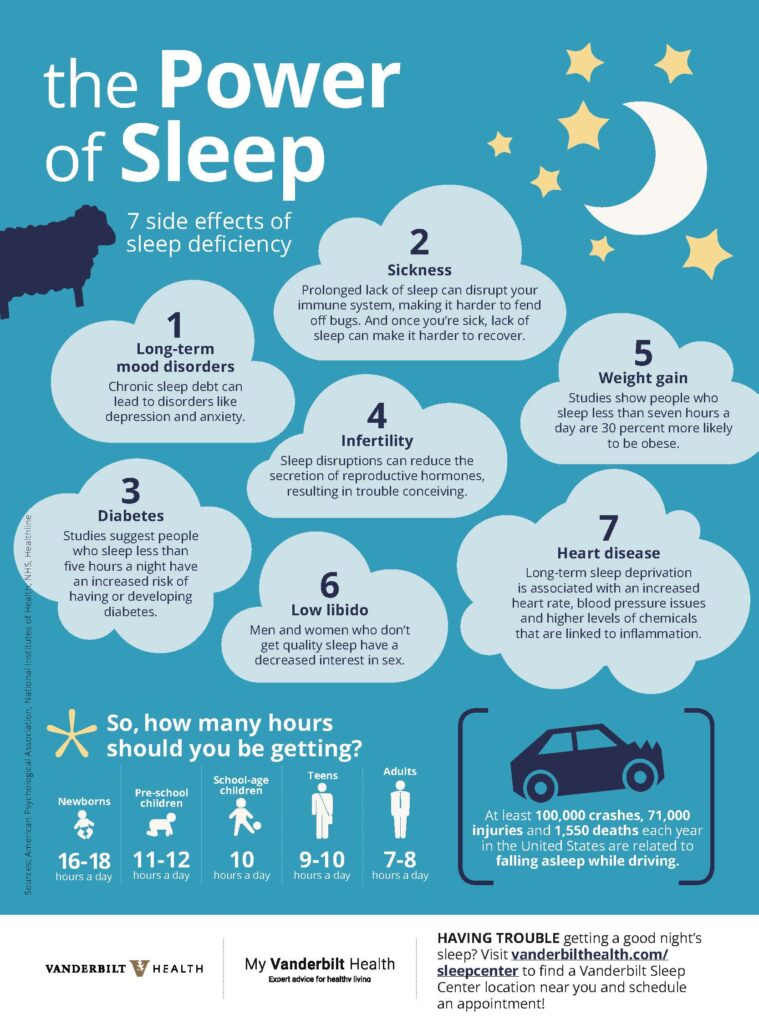We know lack of sleep can make us feel sluggish and grumpy, but there are more benefits to quality sleep than increased energy.
Helping the kids with their homework, working and never-ending trips to the grocery store — life can get busy, but it’s important to prioritize rest in order to stay healthy, said Dr. Beth Malow with the Vanderbilt Sleep Center.
“Sleepiness can leave you sluggish, moody, unable to concentrate or learn new things, and can even impact both short-term and long-term memory,” Malow said. “Lack of sleep for a long duration can trigger impulsive behavior, paranoia and suicidal thoughts.”
And adding to the list of scary side effects: microsleep. That’s when you’re asleep for only a few seconds or a few minutes, but you don’t realize it. Microsleep can make you prone to injuries due to trips and falls. It could also happen at dangerous times, such as when you’re driving.
“If you find yourself sleep deprived, the only way to compensate is with more sleep,” Malow said. Unfortunately, it can’t be made up in a night. If you’ve had months of poor sleep, recovery could take several weeks. So, when you’re planning out your day, week or month, make time for at least seven hours of good sleep per day to support strong health.
“Sleeping fewer than seven hours per night on a regular basis is associated with adverse health outcomes,” Malow said. “If you’re having trouble sleeping on a regular basis, there could be a variety of factors at play, so it’s important to talk to your doctor to find a solution that works for you.”
7 Side Effects of Sleep Deficiency
Get the facts about the importance of sleep and the effects that lack of sleep can have on your well-being.
- Long-term mood disorders. Chronic sleep debt can lead to disorders like depression and anxiety.
- Sickness. Prolonged lack of sleep can disrupt your immune system, making it harder to fend off bugs. And once you’re sick, lack of sleep can make it harder to recover.
- Diabetes. Studies suggest that people who sleep less than five hours a night have an increased risk of having or developing diabetes.
- Infertility. Sleep disruptions can reduce the secretion of reproductive hormones, resulting in trouble conceiving.
- Weight gain. Studies show that people who sleep less than seven hours a day are 30 percent more likely to be obese.
- Low libido. Men and women who don’t get quality sleep have a decreased interest in sex.
- Heart disease. Long-term sleep deprivation is associated with an increased heart rate, blood pressure issues and higher levels of chemicals that are linked to inflammation.


Help for sleep disorders
If you have lingering sleep issues, talk with your health care provider about finding a sleep disorder program. The Vanderbilt Sleep Disorders Center‘s experienced team of professionals is dedicated to helping patients overcome issues that interfere with quality sleep so they can live healthier lives.




